While

Listening to a real estate legend: The official publication of: Canada’s #1 most widely read publication for Apartment Owners, Managers and Association Executives Vol. 15 No. 6 March 2023
does Federal Budget 2023 affect the rental housing industry?
How
the Budget aims to put more money in people's pockets, it doesn't do enough on the housing
Temporary housing solutions
structures can help to address immediate and emergency shelter needs. Accomplishing more with less An all-in-one property management solution can help to fill the gaps caused by the recession. Margaret Herd
front.
These



Project Management | Building Science | Structural Engineering | Roofing Surveys | Condition Assessments | Asbestos and Mould Surveys 1.888.348.8991 McIntoshPerry.com We’ve encountered every possible building-related issue over our five decades of history. With more than 500 engineers, project managers and technical experts across the country, we provide a full range of services to the rental housing industry.
EDITOR’S NOTES
Confirmation
My daughter will be doing her confirmation in May. It’s one of the main sacraments of the Catholic Church. It’s also a significant moment, as it represents a checkpoint in her life. In addition to referring to a religious ceremony, confirmation means verification or final proof of something happening. Confirmation can be comforting because what you believed or were waiting for has happened. It could mean your belief or thought was validated. It allows you to relax because you have the answer or you’ve achieved your goal. I’ll probably feel the same once the confirmation has happened, as we (as a family) will have achieved a goal.
This issue of RHB Magazine features a recap of the first episode of Real Estate Legends: Past, Present, and Future on BoldTV. It launches with an interview of Margaret Herd, Senior Vice President of Operations and Development for Park Property Management Inc. The show will feature some of the biggest names in real estate, going into their personal life stories and uncovering the struggles they overcame to arrive where they are today. You’ll learn about Margaret’s past, her family, and what she sees in her future. The second article summarizes Federal Budget 2023 and how it affects the rental housing industry. It covers measures involving affordable housing, putting more money into Canadians’ pockets, changes in taxation, incentives for going green, and what’s missing from the Budget. The third article discusses temporary housing solutions for addressing unusual and emergency situations, and lists some companies’ offerings that rental housing providers and government agencies can consider. Don’t forget to read CFAA’s newsletter, National Outlook , as well as the Regional Association Voice. FRPO announces the newest members of the Housing Supply Action Plan Implementation Team. Yardi Canada wraps up this issue by explaining how an all-in-one cloud platform can help property owners and managers do more with less.
We enjoy hearing from our readers, and we want to support twoway communication. If you have any comments or questions, send them to david@rentalhousingbusiness.ca. I look forward to your emails.
Publisher Marc Côté marc@rentalhousingbusiness.ca
Associate Publisher
Nishant Rai
Editorial David Gargaro david@rentalhousingbusiness.ca
Contributing Editor
John Dickie, President CFAA jdickie@rentalhousingbusiness.ca
Creative Director / Designer
Scott Clark
Photography
Noah Goldentuler
Sales Executive
Justin Kreslin
Office Manager
Geeta Lokhram
Subscriptions
One year $49.99 Cdn
Two years $79.99 Cdn Single copy sales $9.99 Cdn
Opinions expressed in articles are those of the authors and do not necessarily reflect the views and opinions of the CFAA Board or management. CFAA and RHB Inc. accept no liability for information contained herein. All rights reserved. Contents may not be reproduced without the written permission from the publisher.
P.O. Box 696, Maple, ON L6A 1S7 416-236-7473
Produced in Canada
David Gargaro Senior Editor
All contents copyright © RHB Inc. Canadian Publications Mail Product Sales Agreement No. 42652516

Enjoy the issue!
4 | March 2023




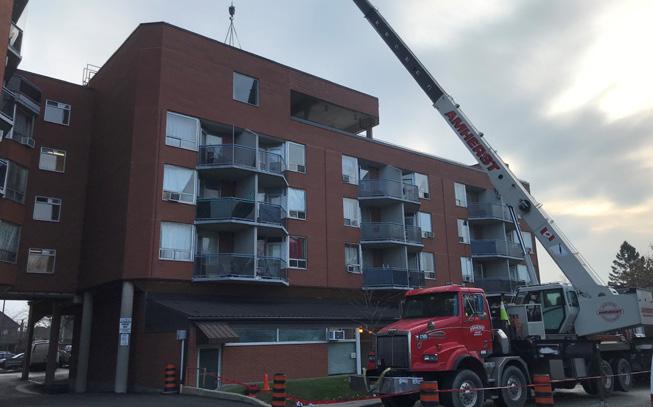

We hope to partner with you today... ...to build for a SOLID tomorrow Emergency Response | Disaster Restoration | Suite Upgrades | Capital Improvements | New Development Montreal | Ottawa | Toronto | Edmonton | Calgary | Vancouver | Victoria 66 Leek Crescent, Richmond Hill, ON, L4B 1H1 info@solidgc.ca (905) 470-0707 solidgc.ca
Listening to a real estate legend: Margaret Herd
RHB Magazine attends the first episode of Real Estate Legends, where we learn how Margaret Herd made it to where she is today.

Final Take Away
How does Federal Budget 2023 affect the rental housing industry?




The Budget includes measures to put more money into Canadians' pockets, but does not adequately address the housing shortage.
Accomplishing more with less
may bring.
6 | March 2023 47 Regional Association Voice RHB’s forum for rental housing associations to share news, events and industry information The Member Associations Hot Topics: LPMA discusses how institutions and programs in London help low-income tenants pay their rents, and what is planned for organic recycling (green bins) in both large and small rental buildings. pg. 49 EOLO reports on the City of Ottawa’s moves on organic recycling, new City steps under the Rental Housing Property Management bylaw, and the last call for declarations under the City’s Vacant Unit Tax. pg. 53 HDAA reports on new condo conversion policies, a major new redevelopment to cost more than $1B, the Hamilton Vacant Home Tax, and housing market reports from speakers at HDAA’s recent Dinner meeting. pg. 57 SKLA discusses upcoming organic recycling in Regina and Saskatoon, advocacy with the Saskatchewan Office of Residential Tenancies and the City of Prince Albert, the provincial Budget, the Saskatchewan Housing Benefit, and member services. pg. 61
an all-in-one property management solution
fill
gaps
RAV features the latest industry news from four member associations. Temporary housing solutions Temporary housing structures can address immediate and emergency shelter needs. CONTENTS VOL.15 NO.6 2023 64 30
Implement
to help
any
a recession

ASPHALT PAVING CONCRETE PAVING SITE servicing LANDSCAPE CONSTRUCTION BUILDING RESTORATION WINTER SNOW SERVICES service@forestgroup.ca 416.524.3000 24 HOUR EMERGENCY SERVICE forestgroup.ca DIVERSIFIED CONSTRUCTION
PRESIDENT’S CORNER
The risk of serious conflict between the federal government’s two main housing goals became manifest over the last few months. To address Canada’s housing crisis, the government knows it must encourage more housing supply, but it also wants to curb bad behaviour among market actors. With both the prohibition on foreign buyers, and the underused housing tax (UHT), the government overreached, and put housing supply at risk. Thankfully, the government then stepped back, amending the prohibition, and buying time to review the UHT. See pages 26, 35 and 37 for more details.

In CFAA’s view, the new Housing Accelerator Fund is off to a much better start. After the government announced the fund last year as a measure to enable the municipalities to speed up approvals and increase housing supply and density, some housing advocates sought to re-direct the fund to the support of affordable housing, rather than all housing, including market housing. CFAA pushed back, and CMHC and the government held firm to the original program goal. See page 38. Two important consultations are coming up on ”financialization”, the profit motive and the new federal right to housing. One consultation is at the HUMA Committee, while the other is in front of a Review Panel of the National Housing Council. See page 35.
CFAA-Rental Housing Conference 2023 will be held in Halifax from Wednesday, June 14, to Friday, June 16. The conference will address rental operations, operational and investment risks and opportunities, rental development, human resources, EDI, marketing, energy issues and technology. For the full list of topics and social events, see page 40. For building tour highlights, see page 29. For the schedule, visit www.CFAA-RHC.ca. Register
now before the hotel block is full!
The Home Depot is a CFAA Strategic Partner. By registering your membership in CFAA (either directly or through one of CFAA’s 13 member associations) with Home Depot Pro, you benefit yourself and CFAA. This partnership benefits every rental housing provider reading this magazine.
Yardi Systems is another long-standing CFAA Strategic Partner. As well as receiving Yardi’s help with rent information, we look forward to continuing to work with Yardi to bring you the latest and best information on technology for rental housing providers.
If you are not already a direct member of CFAA, please join CFAA as a Direct Rental Housing Provider Member, or a Suppliers Council Member. Visit www. cfaa-fcapi.org or-mail admin@cfaa-fcapi.org today!
8 | March 2023
John Dickie, CFAA President

In this issue of... NATIONAL OUTLOOK
35. What steps did the Federal government take on its housing agenda, and then rollback? Are rental housing providers pleased with the details of the new Housing Accelerator Fund? What important consultations are coming up?
Corporation des Propriétaires Immobiliers du Québec (CORPIQ) www.corpiq.com

P: 514-748-1921
Eastern Ontario Landlord Organization (EOLO) www.eolo.ca
P: 613-235-9792
Federation of Rental-housing Providers of Ontario (FRPO) www.frpo.org
P: 416-385-1100, 1-877-688-1960

Greater Toronto Apartment Association (GTAA) www.gtaaonline.com
P: 416-385-3435
38. Where and when will CFAA Rental Housing Conference 2023 take place? What will the education program be? What about the social events? What about the new buildings on the Building Tour?

Hamilton & District Apartment Association (HDAA) www.hamiltonapartmentassociation.ca
P: 905-632-4435
Investment Property Owners Association of Nova Scotia (IPOANS) www.ipoans.ns.ca
P: 902-425-3572
LandlordBC www.landlordbc.ca
P: 1-604-733-9440
Vancouver Office P: 604-733-9440
Victoria Office P: 250-382-6324
London Property Management Association (LPMA) www.lpma.ca
P: 519-672-6999
Compensation Survey 2021 - 2022
Compensation Survey 2023
41. Want to raise net revenue for your company? Optimize employee pay, satisfaction, motivation and retention. Provide your compensation data, confidentially, by June 30, for a substantial discount on the CFAA report you need!
To subscribe to CFAA’s e-Newsletter, please send your email address to communication@cfaa-fcapi.org.
The Canadian Federation of Apartment Associations represents the owners and managers of close to one million residential rental suites in Canada, through 13 apartment associations and direct landlord memberships across Canada.

CFAA is the sole national organization representing the interests of Canada’s $950 billion rental housing industry.
For more information about CFAA itself, see www.cfaa-fcapi.org or telephone 613-235-0101.
New Brunswick Apartment Owners Association (NBAOA) www.nbaoa.ca
jbrealsetate@nb.aibn.com
Manufactured Home Park Owners Alliance of British Columbia (MHPOA) www.mhpo.com
P: 1-877-222-4560
Professional Property Managers’ Association (of Manitoba) (PPMA) www.ppmamanitoba.com
P: 204-957-1224
Saskatchewan Landlord Association Inc. (SKLA) www.skla.ca
P: 306-653-7149
Waterloo Regional Apartment Management Association (WRAMA) www.wrama.com
P: 519-748-0703
10 | March 2023
CFAA Member Associations
Ahmed Hussen, Minister of Housing and Diversity and Inclusion
Atlantic Canada’s largest city

Top Primary Rental Markets in Eastern Canada
2 1 4 3 5

Halifax, NS
Moncton, NB
Saint John, NB
Fredericton, NB
Charlottetown, PEI
St. John’s, NL
2022 National Edition theAnnual 6
source:


Listening to a real Margaret Herd
Listening to a real Margaret Herd
By David Gargaro
BoldTV recently recorded its first episode of Real Estate Legends: Past, Present, and Future. The show features some of the biggest names in real estate, going deeper than what can be found in news story headlines and corporate bios. Viewers will learn how those big names became legends from their personal life stories and the struggles they overcame to build the lives they have today.

The first episode of Real Estate Legends featured a personal and candid conversation between Kerry Chandler, Anchor and Producer of BoldTV, and Margaret Herd, Senior Vice President of Operations and Development for Park Property Management Inc. RHB Magazine was fortunate to be in attendance during this auspicious event. To watch a video of the interview, visit BoldTV.ca/ legends.

estate legend: estate legend:

Margaret’s career
Margaret has been with Park Property for 43 years, beginning her career in 1980 as a junior accounts receivable clerk. At the time, the company managed approximately 4,500 residential units and had about 100 employees. When she was 40 years old, Margaret had the opportunity to further her education to help advance her career. She took on the challenge and obtained her certificate of business management from the University of Toronto. She later became Vice President, and has helped to grow Park Property’s portfolio to 11,245 residential units and almost 300 employees.
“As new construction is fundamental to this growth, it’s a privilege being involved at all levels of decision making,” said Margaret.
While Margaret is gratified by Park Property’s portfolio growth, she is even prouder of the corporate culture that she has helped to shape, helping to make a great company to work for even greater.

“As the embodiment of promoting from within, I am adamant about an environment that ensures all staff can pursue ongoing training and education,” said Margaret. “We not only encourage but incentivize by paying for courses that help the staff grow from within.”
Park Property is a decentralized company with multiple field offices staffed by property managers, support staff, accounts receivable and payable and administrative staff. Margaret has consistently insisted that staff, who deal with residents and trades every day, are the front line of the company, while head office acts as resource and support.
The best example of this bottom-up team work was the 2013 ice storm. After the storm, Margaret set up an Emergency Task Force Committee comprised of management, building staff, and central maintenance department. They established emergency rooms in their buildings with water, emergency lighting, sandbags, and other emergency requirements. The committee continues to meet, discuss, and develop procedures and best practices for the organization.
She completed her first development in 2009: a 91-unit building at 88 Spadina Road. Her most recently completed project occurred in 2016, a two-building complex of 211 units at 66 Isabella Street. Margaret and Park Property are currently in the midst of construction and municipal development approvals for a total of seven purpose-built rentals on six infill sites, which will add another 1,535 units to the portfolio. While Margaret enjoys building new properties, most of the company’s growth has occurred through acquisitions. Her involvement in this area is paramount, as acquisition requires constant attention so as to not miss out on great hidden gems.
“Within the last 20 years, I’ve overseen, on average, one to two building acquisitions per year,” said Margaret. “The most significant of those purchases was the 2022 Minto London acquisition. The deal made national headlines, as we added 12 buildings, 2,114 residential units, an office building, and a shopping mall to the portfolio. Not bad!”
“This method of working together ensures ownership throughout and everyone, rather than being told what to do, understand and implement the policies and best practices because they are part of the development,” said Margaret.
Margaret has also taken ownership of fostering an environment of opportunities for all. Since joining management, she has insisted that women in the office be treated equally. She reversed policies where women in the office were expected to make the coffee, remove dishes from desks, and hand wash them on a rotational basis. She was also instrumental in topping up maternity and paternity leave to 100 per cent of salary.
Margaret also believes in supporting others, and has volunteered her time with outside organizations. She has been a FRPO Board Member since the mid 2000s. This includes serving as an Executive Committee Member, and serving as Chair from 2018 to 2020. She is also the Chair of the GTAA Charitable Foundation Committee. Margaret recently joined the L’Arche Toronto Capital Campaign Committee, which is working to raise $3.8 million toward the new affordable, fully supported home for persons with intellectual disabilities.
16 | March 2023 continued on page 20
The Byng Group: A Leader in Multifamily Residential Turnover
The Byng Group provides end-to-end turnover services for multifamily residential properties across Ontario.

Ranging from a standard apartment turn to a full reposition, Byng’s vertically integrated offering combined with proprietary technology to provide customers with a reliable solution that is unmatched in the market.
Whether you’re turning over one unit or a hundred, the renovation process presents significant complexities for all stakeholders.
Rent Ready Challenges
• Short lead times
• High volume
• Sequencing and coordinating the multitude of tasks required
• Minimal time to complete
• Cost uncertainty
There’s a better way
The Byng Group offers end-toend turnover services so clients are involved in the process in a more time and cost-effective way, allowing them to focus on the performance of their business.
...all contribute to extended downtime resulting in unncesscary vacancy and lost revenue when any part of the process breaks down.
The Byng Group specialize in navigating industry challenges to provide the right renovation services, at the right price, and within the shortest time possible.
The Byng Group’s integrated end-to-end project approach efficiently coordinates and accelerates every aspect of the turnover process so units can go back to generating revenue without costly delays.
This sophisticated approach coupled with our proprietary technology produces the most seamless renovation experience – and the best result - in the business.
The
1.855.USE.BYNG customerservice@thebynggroup.com www.thebynggroup.com
Copyright © 2022.
Byng Group Inc. All Rights Reserved.
Delivered to you by

Taking on challenges
 By David Gargaro
By David Gargaro
Kerry: You obviously accept challenges very well. What challenges you today?



Margaret: It’s interesting because at this time, now with doing operations as well as development, it’s two different minds. You have to know your operations, your everyday business, and then with the developments, you’ve got a whole new list of things you’ve got to worry about. You have planners, you have the city and you have to deal with architects, and that’s a bit of a challenge, not that the architects are challenge, but the municipal delays are. But I have a great team. The team that we have at Park Property, everybody is encouraged, everybody is dynamic, everybody is resourceful. It’s a lot of fun to work in that environment.
Kerry: You mentioned that you were proud of creating the garden on top of one of the buildings.
Margaret: Oh, that is an exciting project. Many years ago, I was approached by a woman in the area of Thorncliffe Park with regard to supporting them, as well as working with them on a community garden. But I didn’t want a community garden where people had separate plots. I was always worried that those would get messy and people would abandon them. If this is going to happen, we have to do it in large scale. So we actually worked with a program called Summer Lunch Plus, as well as the Thorncliffe Park urban farmers. For about five years now, we have about an acre at the back of 53 Thorncliffe Park, where we actually have a farmer and her support team. We grow between 900 to 1000 pounds of food a year. With that food, we also serve the children in the schools. They also have a summer program where they harvest the vegetables, the herbs, and so forth, and learn to cook. It’s a really great program. It’s something we love, something that’s exciting, and it gives back to the community.
18 | March 2023



CONTACT US! info@snaile.com or visit www.snailelockers.com for contactless and secure resident delivery information MULTI-RESIDENTIAL | RETAIL | OFFICE | SCHOOL CAMPUS | www.snailelockers.com MANAGING RESIDENT DELIVERIES WHY SNAILE CANADA? Scan QR Code to find out! CERTIFIED DATAHOSTED INCANADA SERVICING NAC A D AN DATA SECURITY PRIVACYLAWS PROC E D SERU C ANADIANCARRIERSDELIVE R CONTRACTS INFORCE PROTECTED BY PIPEDALAW S CANADIAN TOWNS+CITIES55 + OEM $ 9/10 SERVICING LARGEST CANADIAN BUILDING OWNERS CANADIAN CYBER INSURANCE POLICY MADE IN CANADA INTEGRATED WITHYOURBUILDING’SSOFTWAR E API ISO/IEC 27001 PRICE MATCH GUARANTEED PROTECTED BY CANADIAN ELECTRICAL CODE CSA C22. 1 FIRE RATED CAN/ULCS102 ORIGINAL EQUIPMENT MANUFACTURER NOT A RESELLER DELV YTICKETINGS STEM UP TO 355x LESS ² CO EROM VNE I R ONMENTALLY FRIENDLY
Childhood and family
Margaret spoke about her childhood, being the middle child in a family of five children. Her parents immigrated to Canada from Yugoslavia. They were German speaking and lived in a country that did not welcome them. They went to Austria as refugees, before moving to Canada because her father heard that it was a better place to live. They were a very close family, although both parents passed away recently (her father was 96, her mother was 93). And even with five children, 12 grandchildren, and five great-grandchildren, the family has stayed close. Margaret was born and raised in the Beaches area of Toronto, and still lives in the area. Much like her family, it’s a tightknit community, which she feels has benefited her children as well.
Kerry: How would you say your childhood and upbringing influenced you as an adult?

Margaret: When my father came to Canada, he was first employed by a concrete company. When he was laid off, he went to a company where he saw them building houses. He decided to become a contractor. When I got my job, it was kind of a natural move. Much like other Europeans, they had the idea that their children should go to university.
Kerry: You had mentioned that your parents recently passed away. How is it dealing with that after the passing?
Getting married and raising a family
Margaret married her high school sweetheart, David, and together they’ve raised three children, two boys and a girl. Her eldest son, Nicholas, was born with Down syndrome. Margaret was only 25 years old at the time, and this was both a surprise and a challenge for her and her husband. Nicholas was born at a time when there was not a lot of support for families that had children with a disability.
When they went looking for supports, they were invited to a meeting of parents of children with Down syndrome. Because they weren’t happy with the supports available from the city, they decided to start their own support group. Margaret and nine parents from this meeting founded the Down Syndrome Association of Toronto. Margaret sat on the board and served as secretary-treasurer, and Nicholas was on the first brochure cover. It was a grassroots organization, as Margaret used her home phone number to take calls from parents. The calls, some as far away as India, were mainly on how to garner support for their children in Toronto and Ontario in general. The board members of the new association also supported new parents on how to get supports and services, and generally to realize that the diagnosis was not a tragic event.
Kerry: Nicholas is a star in his own right, and if I’m honest, I’m a little jealous of his career in front of the camera. I checked out his YouTube channel and I love it. I saw the one where he interviewed your husband.
Margaret: We’re still dealing with it. Actually, it was difficult. We all rallied together and lived with my mom on an occasional basis, as my older sister had retired and she was the one that stayed with her the most. My mother had dementia, so we knew that she needed extra care. Thankfully, my dad was able to come home before he passed on, and then my mother’s passing was very sudden. It’s kept us close. We’re all very together. We frequently communicate through WhatsApp with each other as five siblings, and sometimes it’s emotional, and sometimes it is just funny.
Margaret: Nick has had quite a career. He had actually been more places in this world than I’ve been. He loves to paint, and recently completed a commissioned painting for the boardroom in the Daniels Group Artworks building in the Regent Park area of Toronto. Nicholas has a YouTube show on the Disability Network called Keeping it Real with Nick. He’s been a lecturer at McMaster University Hospital to medical students. He co-wrote a children’s book with his sister-inlaw. He was a creative director on an animated

20 | March 2023 continued from page 16

short called Free Bird that was long listed for an Academy Award, so he’s been to New York, Chicago, and other places to promote it.
crawling around on the ground, colouring, and now it’s a whole different environment than when I was raising kids. It’s a lot of fun because you can hold them and you can hug them and then just take them back and get your restful sleep.
Looking forward to retirement
Kerry: And what about your other two kids?
Margaret: They followed my husband’s route. They are both in commercial interiors for project managers. My son Mackenzie went to school for English. That did a lot of good for that. My daughter Katrina took history. My daughter-in-law is a school teacher in Mississauga in the Catholic schoolboard. My daughter’s partner is a firefighter in Hamilton and a professional lacrosse player for the Toronto Rock.
Kerry: Now your kids are having kids of their own. Talk to us about you and David being proud grandparents.
Margaret: Honestly, when people tell me it’s the best thing ever. Before I had grandkids, I was like, “Yeah, okay.” It is absolutely true. My youngest son and his wife have a baby girl who just turned one. We just had a wonderful birthday party for her, and with about 80 people, just a small one. My daughter is pregnant with her first and it’s a little boy, and he’s due at the end of June. You probably think when you’re going to be a grandparent that you’re not going to have the energy for it, and it just brings a whole new purpose. You do things that you never thought you’d be doing again, like
David retired last year, but Margaret continues to work, although retirement has been on her mind for some time. She has not committed to retiring just yet as Park Property is currently developing seven apartment buildings, which is keeping her busy. Due to project delays, and her promise to see it through, Margaret has no plans to leave Park Property until the work is done.
Kerry: What will you do after retiring?


Margaret: Well, we have a very nice cottage north of Peterborough, which sits on three and a half acres and it’s very big and we entertain a lot. We have a lot of family there. We have six bedrooms, so it’s a great place to entertain and enjoy the great outdoors. We have lots of toys and all that kind of stuff. Those are the type of things that we have in mind to do. As you know, my husband never stops working. He is a carpenter by trade and can do absolutely anything. We have two big dogs that are our new little babies. They’re big boys, brothers from two different litters. They’re very loud and very adorable and they just love attention.
Kerry: Well Margaret, I’m so happy you agreed to be the first of many real estate legends we will be featuring. We couldn’t be more fortunate to have been able to tell your story. Now what do you say we walk these two dogs who have been so good throughout this interview.


22 | March 2023






MULTI-RESIDE SPECIALISTS IN BED BUGS A Dynamic Integrated Pest Management programs, designed to effectively eliminate household pests. Locally operated, we r skilled staff will develop a plan to p plan to prevent future infestations. H e a t t r e a t m e n t s a r e t h e m o s t e f f e c t i v e w a y t o k i l l b e d b u g s . Don’t let the Bed Bugs Bite! Don’t let the Bed Bugs Bite! 416-297-8010 Rats & mouse WE GOT ALL PESTS COVERED Cockroaches Spiders Fleas & Bedbugs Termites s t o r e . a d v a n t a g e p e s t c o n t r o l . c o For a full line of Do-It-Yourself products & options available at: 1 Year Home Protection Plan FREE Inspection for Bedbugs & Cockroaches SSimple imple Online Booking Online Booking advantagepestcontrol.co K9 BED DOG BUG INSPECTIONS BED BUG SPECLIAISTS ADVANTAGE PEST CONTROL F U L LY L I C E N S E D & I N S U R E D K9 Scent Detection for Bed Bugs
How does Federal Budget 2023 affect the rental housing industry?
By David Gargaro
Deputy Prime Minister and Minister of Finance Chrystia Freeland delivered the 2023 Federal Budget on March 28. According to the government, the Budget includes investments and initiatives to grow the economy and increase the number of middleclass jobs, reduce the cost of living and make everyday life more affordable, strengthen the public healthcare system, and protect the environment. The Budget includes a number of changes that will affect the rental housing industry.
Making housing more affordable
It is increasingly difficult for Canadians to purchase a home, given the rising cost of home ownership (which has recently moderated in parts of Canada) and the significant increase in interest rates. Market rents have also increased in many key markets, largely due to the lack of rental stock in those markets. (However, due to inflation and restrictive rent control guidelines in most provinces, average rents are falling behind cost increases.) The lack of affordable housing has also affected the economy, as it is difficult for businesses to attract new employees who cannot find housing they can afford within commuting distance of the workplace.
Budget 2023 builds upon the investments made in Budget 2022 to make housing more affordable, such as helping people to purchase their first homes and addressing practices that may be driving up housing costs.
In the past year, the federal government has:
• Introduced a two-year ban on non-resident, non-Canadians purchasing residential property to help curb speculation
• Introduced a 1 per cent annual underused housing tax (UHT) on the value of non-resident, non-Canadian owned residential property that is vacant or underused
• Introduced a new Tax-Free First Home Savings Account so Canadians could save up to $40,000, tax-free, to buy their first home
• Doubled the First-Time Home Buyers’ Tax Credit, which would provide a tax credit up to $1,500 to home buyers to offset closing costs when buying a first home
• Introduced a refundable Multigenerational
Home Renovation Tax Credit for up to $7,500 in support for constructing a secondary suite for a senior or an adult with a disability
• Applied the GST / HST to all assignment sales of newly constructed or substantially renovated residential housing to address speculative trading in the housing market;
• Launched a $4 billion Housing Accelerator Fund to incentivize housing supply growth
• Launched a $200 million stream under the Affordable Housing Innovation Fund to develop and build rent-to-own projects
• Launched a third round of the Rapid Housing Initiative, which provides $1.5 billion to create 4,500 new affordable housing units for Canadians in severe housing need
• Delivered over $500 million towards the goal of ending chronic homelessness, through Reaching Home, Canada’s Homelessness Strategy
• Topped up the Canada Housing Benefit, which provided $500 to low-income renters who applied for the one-time benefit
Under Budget 2023:
• As of April 1, 2023, financial institutions can start offering the Tax-Free First Home Savings Account. This will enable prospective first-time home buyers to save up to $40,000 on a taxfree basis, which will be used for their home purchase.
• The government will support the reallocation of funding from the National Housing CoInvestment Fund’s repair stream to its new construction stream to boost the construction of new affordable homes.

24 | March 2023
PROVIDING OUR CLIENTS WITH THE HIGHEST POSSIBLE ROI



. .
THE APT PROMISE:
• The government will commit an additional $4 billion, over seven years, starting in 2024-25, to implement a co-developed Urban, Rural, and Northern Indigenous Housing Strategy. This is in addition to the $6.7 billion committed to the strategy since 2015.
• The government will consult on what would be required to remove regulatory barriers for homebuyers who need to access alternative financing products.
• The government, through the Financial Consumer Agency of Canada, will ensure federally regulated financial institutions provide Canadians with mortgages with fair and equitable access to appropriate relief measures (e.g., extended amortizations, adjusted payment schedules, authorization of lump-sum payments).
Amendments to UHT penalty, and prohibitions on the purchase of property by non-Canadians
As noted above, the federal government imposed a new 1 per cent annual UHT on foreign ownership of vacant or underused housing in Canada. The tax applies to non-resident, non-Canadian owners; however, the reporting requirements also apply to some Canadian individuals and corporations. Affected owners of residential property in Canada were required to file a special tax return for the UHT by April 30, 2023 for properties owned as of December 31, 2022.
Due to complications with the rollout of the UHT, the government has delayed the filing deadline until October 31, 2023. On March 28, the CRA made the following announcement of the change to the UHT reporting deadline:
“The Canada Revenue Agency (CRA) understands that there are unique challenges for affected owners in the first year of the Underused Housing Tax Act (UHTA) administration. To provide more time for affected owners to take necessary actions to comply, the Minister of National Revenue is providing transitional relief to affected owners. The application of penalties and interest under the UHTA for the 2022 calendar year will be waived for any late-filed underused housing tax (UHT) return and for any late-paid UHT payable, provided the return is filed or the UHT is paid by October 31, 2023. This transitional relief means that although the deadline for filing the UHT return and paying the UHT payable is still April 30, 2023, no penalties or interest will be applied for UHT returns and payments that the CRA receives before November 1, 2023.”
Effective January 1, 2023, to help curb speculation, the federal government introduced a two-year
ban on non-resident, non-Canadians purchasing residential property. On March 27, to help with adding to the housing supply, the government amended the ban to allow non-Canadians more flexibility in purchasing residential property. The amendments include:
• Enabling more work permit holders to purchase a home to live in while working in Canada
• Repealing an existing provision so the prohibition does not apply to vacant land
• An exception for development purposes
• Increasing the corporation foreign control threshold from 3 per cent to 10 per cent
Ahmed Hussen, Minister of Housing and Diversity and Inclusion, made the following statement:
“To provide greater flexibility to newcomers and businesses seeking to contribute to Canada, the Government of Canada is making important amendments to the Act’s Regulations. These amendments will allow newcomers to put down roots in Canada through home ownership and businesses to create jobs and build homes by adding to the housing supply in Canadian cities. These amendments strike the right balance in ensuring that housing is used to house those living in Canada, rather than a speculative investment by foreign investors.”
For more information on both of these amendments, see page 37 of National Outlook.
Putting more money in people’s pockets
To help fight rising costs due to inflation, Budget 2023 introduces new targeted measures to support Canadians who need the most help. These measures affect both rental property owners and tenants, as everyone is affected by rising costs. Over the past year, the federal government has introduced the following measures:
• An enhanced Canada Workers Benefit that provides families with up to $2,461 this year and single Canadians without children with up to $1,428
• One-time inflation relief payments to about 11 million low- and modest-income Canadians, for up to $467 for a couple with two children and up to $234 for a single Canadian without children
• Direct, tax-free payments of up to $1,300 per child over two years to eligible families to cover children’s dental expenses
• A tax-free payment of $500 to help low-income people with rent payments
• A 10 per cent increase in Old Age Security (OAS) payments for seniors who are 75 and older
26 | March 2023
The complete market perspective for the rental housing industry
2023
• Reducing fees for regulated child care by 50 per cent on average, with six provinces and territories reducing child care fees to $10-a-day or less by April 2, 2023
Budget 2023 included the following measures to help with inflation:
• A one-time Grocery Rebate for 11 million lowand modest-income Canadians and families, which will provide eligible couples with two children with up to $467, single Canadians without children with up to $234, and seniors with up to $225 on average
• Intention to work with regulatory agencies, provinces, and territories to reduce junk fees (e.g., telecom roaming charges, event and concert fees, excessive baggage fees, unjustified shipping and freight fees)
• Secured commitments from Visa and Mastercard to lower fees for small businesses
• Increasing the number of eligible Canadians for File My Return to two million by 2025, and piloting a new automatic filing service to help vulnerable Canadians who do not currently file their tax return and thus miss out on benefits they are entitled to
• Enhancing student financial assistance for the school year starting August 1, 2023 by almost $1 billion
• Increasing the benefits provided through Old Age Security (OAS), Guaranteed Income Supplement (GIS), and Allowances for seniors
Changes in taxation
In addition to the delay in the UHT reporting requirement, Federal Budget 2023 made other taxrelated changes that could affect rental property owners. These include:
• Raising the Alternative Minimum Tax (AMT) rate from 15 per cent to 20.5 per cent and limiting the excessive use of tax preferences
• Increasing the basic AMT exemption from $40,000 to $173,000, thereby increasing the income level necessary to pay the AMT
• Planning to introduce legislation by the end of the year to ensure large multinational corporations are subject to a minimum effective tax rate of 15 per cent on their profits wherever they do business
• Intention to introduce a 2 per cent tax on share buybacks by public corporations, effective January 1, 2024; this tax would not apply if a business’ gross repurchases of equity were less than $1 million
• Amending the Income Tax Act to treat dividends received on Canadian shares held by financial institutions as business income
Incentives to go green
Budget 2023 includes a number of incentives for businesses (including rental property owners) to invest in reducing their energy usage and carbon footprint. These incentives include:
• The Clean Hydrogen Investment Tax Credit, which provides refunds of up to 40 per cent of eligible project costs; the credit applies to the cost of purchasing and installing eligible equipment for eligible projects (e.g., producing heat and/or power from natural gas or hydrogen)
• Expansion of the refundable 30 per cent Clean Technology Investment Tax Credit to include geothermal energy systems; this includes include equipment used generate electrical energy and/or heat energy solely from geothermal energy
What’s missing from the budget
While Budget 2023 does include funds for housing, most of the funding was announced in the previous Budget. Despite the understanding that Canada has a serious lack of affordable housing, there were no new investments or programs to address this issue. Housing experts noted they would have liked to have seen more funds and programs, citing the following issues:
• There are no new or increased investments to support accelerated construction of affordable housing; this is particularly challenging given the need for Canada to double its affordable housing stock to meet its growing needs.
• There was no announcement of an acquisition fund to enable non-profits to acquire naturally occurring affordable housing and preserve its affordability, despite substantial support for it from housing advocates from many parts of the housing spectrum, including CHRA, CFAA, and the REITs.
• While there have been investments in a rental housing funds at the provincial level, there are no equivalent investments at the federal level to help support these programs.
• There have been no significant updates to the National Housing Strategy to keep up with the current economic situation (e.g., high interest rates, high construction costs).
• The application deadline for the one-time Canada Housing Benefit top-up was not extended despite the disappointing take-up by low-income Canadians.
• The Canada Housing Benefit was not expanded as recommended by the Canadian Alliance to End Homelessness and CFAA.
28 | March 2023
Wednesday, June 14, 2023 12:30 to 5 pm




Departing from the Westin Nova Scotian



Followed by CFAA

Welcome Reception
www.cfaa-rhc.ca
 Principal Conference Sponsor |
Principal Conference Sponsor |
Building Tour
Sponsor
| Proud
Supporting
Partner CFAA Building Innovations Tour PART OF THE CFAA RENTAL HOUSING CONFERENCE 2023 IN HALIFAX
Temporary housing solutions Temporary housing solutions
By David Gargaro
Everyone is well aware of the affordable housing and homelessness issues in Canada’s largest cities. There are many people and families who do not have a permanent place to live. Some cities have significant shortages of rental housing.
It’s very difficult and expensive to build permanent purpose-built rental properties, due to rising construction costs, labour shortages, and other factors. There’s a real need to update housing construction techniques, as not much has changed in the last 50 years. Rents are also on the rise due to supply not keeping up with demand, increasing immigration numbers, delays in planning approvals at the provincial and municipal levels, government charges for development, and other factors.
Many approaches have been taken to address these challenges, such as supportive housing and related initiatives. However, in the short run, temporary housing structures can address immediate and emergency shelter needs (e.g., housing refugees and asylum seekers, providing shelter for people who lost their homes due to fire or flood). These housing options can be adapted to meet temporary housing needs in some situations.
Types of temporary housing solutions
There are a number of options for providing temporary shelter relatively quickly and affordably. Some of these include:
• Shipping container homes: Shipping containers are repurposed into livable spaces, and include plumbing, heating, and electricity. They can also be stacked on top of one another to create multi-story buildings.
• Modular homes: These prefabricated structures can be quickly assembled on-site, and can be customized to meet specific needs. Modular homes are often made from sustainable materials and are energy-efficient.

• Shipping pallet shelters: These structures are made from shipping pallets and are repurposed into livable spaces. They are lightweight, portable, and easy to assemble, and can be customized with whatever amenities are needed.
• Tents and portable shelters: These types of structures can be quickly set up in vacant lots and other open spaces
While these options are not permanent solutions, they can provide immediate shelter when it’s needed.
Companies that build temporary housing solutions
Pallet (palletshelter.com) manufactures sleeping shelters, laundry rooms, bathrooms, dining facilities, and other rapid-deployment products. To build a village, they will work with an on-site service provider to help residents toward finding a solution to permanent housing. Individual shelters can house two to four people. They can also be assembled and disassembled within one hour with only a few basic tools. The shelters come equipped with numerous standard features (such as locking door and windows, integrated shelving, 120V convenience plugs, interior LED lighting). They can be built as large as 10,000 square feet, which could house up to nine families or 32 individuals.
Sprung (sprung.com) designs and builds highperformance tension fabric buildings that can be quickly customized and built. The fabric membrane structures are engineered for total design flexibility, all-weather performance and strength, long-term quality, and cost-
30 | March 2023
effectiveness. The aluminum substructure has a 50-year guarantee, and the membrane is guaranteed for 15 years. The structures can also be quickly dismantled, moved, and installed to another site as needed. Sprung recently partnered with BLT Construction to construct three 60' by 150' fully insulated structures, which have helped to expand Toronto’s emergency response capacity. Each structure can support eight families with 1,000 square feet each and a common corridor.
Cover-Tech (cover-tech.com) manufactures and distributes high quality fabric buildings and custom covers of all shapes and sizes, such as two-car portable garages. They are more useful for temporary shelters during warm months, as they cannot be insulated and would be difficult to heat properly.
Mahaffey USA (mahaffeyusa.com) specializes in the rapid deployment of temporary housing for military, industrial, and disaster relief efforts. Billeting solutions include pole and frame tents, as well as clearspan structures. They can also provide elevated flooring, lighting systems, climate control, gender separation, power generation, and distribution and fire protection equipment. The company also has experience in building base camps, which can house from 250 to 1,000 people and include sleeping structures,
dining facility, HVAC and flooring, portable restrooms, laundry facilities, and more.
Edge Innovations (edgei.com) builds customengineered fabric buildings that can be converted into temporary housing structures. They have experience with supporting communities and municipalities with disaster relief shelters. Their air-supported buildings can protect people against bad weather. And their steel-framed structures are guaranteed for 15 to 40 years. The company’s truss arch fabric buildings are easy to set up and provide immediate protection for people needing a place to live and rest during an emergency.
Conclusion
Temporary housing structures could help to address homelessness in Canada’s largest cities. While these options are not permanent, they are relatively cost-effective and sustainable, and can ensure that people have a place to live and sleep before they can find the right place to live. The temporary structures would also eliminate the need to take over recreation centres and similar facilities regularly used by residents. These types of structures can provide safe and secure temporary housing, especially when supported by government or non-profit housing agencies.

rentalhousingbusiness.ca | 31
Exclusive Discounts for the Rental Housing Industry Members and supplier members of apartment associations save more on home and auto insurance with Westland MyGroup. Click or call for a quote today: westlandmygroup.ca/CFAA 1-844-999-7687



Luxer One has 15+ years of experience providing industry leading Parcel Locker solutions. Coinamatic is a proud Canadian Distributor of Luxer One parcel delivery lockers. www.coinamatic.com | 1.877.755.5302 | info@coinamatic.com CONTACT US! MADE IN NORTH AMERICA USER FRIENDLY APPLE IPAD TOUCHSCREEN UL CERTIFIED 12-GAUGE STEEL The Future of Package Management! User Friendly Self Service 24/7 Package Access Eliminates constant staff disruption for deliveries Officially approved by Canadian Carriers Robust Lockers designed and built in USA 6-8 week delivery timeline Over 200,000,000 parcels delivered to Luxer One lockers
Future-proof your laundry.




Full Page Ad

more about our mobile and cashless bundles and other digital laundry room solutions.
Learn
Keep your residents happy with Coinamatic’s digital laundry room solutions. With the Coinamatic digital laundry room mobile app + card bundle, residents get their choice of easy-to-use mobile or laundry card payment.
App +
Mobile
Laundry Card Bundle
Legends Legends

Real Estate Past Present Future Real Estate Featuring Brought to you by Defying conventional energy thinking, everyday! ON TV TV ca .
Key upcoming consultations on the attacks on rental housing
By John Dickie, CFAA President
Regular readers of National Outlook and RHB Magazine know that the rental housing industry is under attack. The newest attack is from the Federal Housing Advocate, whose reports can be seen on her website. The Advocate condemns “financializaton” and the profit motive in rental housing. She and her office have endorsed the Marxist solutions suggested by ACORN and TheShift. The industry will soon have our chance to make our case to decision makers in public.
The HUMA Committee
The House of Commons Committee on Human Resources, Skills and Social Development and the Status of Persons with Disabilities (the “HUMA Committee”) is soon to consider the financialization issue. CFAA, REALPAC and the REIT Group expect several of our leaders and members to be called as witnesses in May or June.
The HUMA Committee oversees the activity of the Minister of Housing and Diversity and Inclusion. Over the last few months the Committee has been examining the working of the National Housing Strategy. On the committee’s website one can view video of the appearances of Romy Bowers, the President of CMHC, and other people who appeared before the Committee.
The NHC Review Panel
The National Housing Council was created to provide public advice to the federal Housing Minister about the National Housing Strategy and the realization of the right to housing. The Council has struck a Review Panel of three members to consider and report on “financializaton” in purposebuilt rental housing.
The Review Panel is to act as an independent body, although its three members are members of the National Housing Council. The Panel has decided to receive written submissions over a period of eight weeks, to begin soon. The Panel and their staff will review the written submissions, and then choose some of the people or organizations who made written submissions to appear to answers questions and elaborate on key points of their submissions.
CFAA, REALPAC and the REIT Group plan to make independent written submissions, although we are co-ordinating our work to keep the rental housing industry aligned. On its part, CFAA has been working on the contents of our submission with the leaders of a number of CFAA-member associations, as well as other volunteers.
Recent concrete measures: impacts and revisions
The two goals of the government’s housing policy are: one, to take action to increase housing supply and improve affordability; and two, to crack down on bad behaviour in the housing market. So that action on goal two does not interfere with goal one, it is crucial that the government get housing policy right.
rentalhousingbusiness.ca | 35 MARCH 2023


Recently, the government acted on two aspects of the “crack-down goal”, with the underused housing tax and the prohibition on foreign buyers of housing. Both have had serious unintended consequences.
The prohibition on foreign buyers of housing
With some exceptions, since January 1, 2023, non-Canadians are prohibited from buying any residential property, on penalty of fines and orders that the property be sold. In any corporation or joint ventures, the entity was initially considered to be “non-Canadian” if more than 3 per cent of the ownership rights are held by non-Canadians. As a result, all the public REITs were considered to be non-Canadian, as were many largely Canadian companies which are active in developing rental housing. For projects underway, the prohibition would have impeded obtaining new financing.
For projects still at the land assembly phase, the problem was that re-developments almost always involve buying land with some low-density residential properties to intensify. Even raw land often has one or more residences, such as a house on a farm. The prohibition on foreign buyers would have seriously gummed up housing development and reduced new housing supply.
Due to the work of CFAA and other associations in the rental housing industry, the government made amendments to the Prohibition on the Purchase of Residential Property on March 27. The amendments include:
• extending the exception currently applicable to publicly traded corporations under the Act to publicly traded entities formed under the laws of Canada or a province (which will exempt the REITs);
• introducing an exception for purchasing residential property for the purposes of development;
• repealing the vacant land provision from the definition of residential property so that the prohibition does not apply to the purchase of vacant land zoned for residential and mixed use;
• increasing the control threshold from 3% to 10% so that any corporation or entity with 10% or more direct or indirect ownership of shares or ownership interests by a non-Canadian is subject to the prohibition, but not those with between 3 and 9.99%;
These changes are very positive news for many Canadian rental housing developers, especially those who use any foreign financing or deal with companies with any foreign interests. The changes will facilitate all housing development including rental housing development. In turn, more development will be good for tenants, both those who move into the new developments, and those who move into the units the first group of tenants move out of.
The Underused Housing Tax
The federal Underused Housing Tax is an annual 1% tax on the ownership of vacant or underused housing in Canada that took effect on January 1, 2023. The tax usually applies to nonresident, non-Canadian owners. In some situations, however, it also applies to Canadian owners. According to the current law, the underused housing tax requires reporting by many rental housing providers who were not meant to be affected.
The requirements apply to tens of thousands of apartments which are operated as rental buildings, but are held in condo title. As well, the requirements apply to many rental owners who need pay no tax. However, failing to file will be an offence subject to a significant penalty. The form, which was to be filed by April 30, 2023 is 9 pages long and confusing and must be completed for each unit separately. That is liable to catch hundreds of thousands of people whose business is providing properties for rent, and who have every interest in keeping their revenue property rented. Unless revised, that crack down will frustrate rental owners, and hurt rental supply from many small landlords, who provide almost half of the total rental supply.
As on the foreign buyers issue, CFAA and other industry associations have spoken up. In response, the government has extended the filing deadline until October 31. CFAA is hopeful that clarifications and amendments will be introduced to reduce the current overreach of the requirements.

rentalhousingbusiness.ca | 37 NATIONAL OUTLOOK
Canadian citizens and permanent residents who own property in their own name DO NOT need to file the return (nor pay the tax). People and entities who own properties of four residential units or more DO NOT need to file the return (nor pay the tax).
In CFAA’s view, all other rental housing providers (such as corporations, partnerships and trusts) may be well advised to stop working on the new federal tax return for now, since various rules may be changed. (Of course, you will want to save the work you have already done to minimize the work needed later, and you will need to pick up the issue again by September.)
Any municipal or provincial underused or vacant housing tax is not affected by this change, or by that suggestion.
The Housing Accelerator Fund
While the details have just been announced, and it is too early to see confirmation that the Housing Accelerator Fund is well designed, CFAA is optimistic. The Fund “will provide … contributions to local governments to encourage local initiatives that remove barriers to housing supply, accelerate the growth of supply and support the development of … communities which are affordable, inclusive, equitable and diverse.”
To receive funding, municipalities must develop and commit to an action plan to grow the housing supply and speed up housing approvals. They must also complete or update a housing needs assessment report, and commit to a housing supply growth target that increases the average annual rate of growth by at least 10%. None of those items should be a problem for most municipalities.
The action plan is to include proposed initiatives such as measures to increase density, reduce parking requirements, or enhance processes or systems that will help the applicant achieve their committed targets.
The federal funding for municipalities includes base funding for the added “HAF units” (of $20,000 per unit), top-up funding for multi-unit housing, and bonus funding for affordable housing. According to the example CMHC sets out, the bulk of the funding will likely be for the base funding, the next largest amount for achieving more multi-unit housing, and the lowest of the three amounts as the bonus for affordable housing.

CFAA commends the government and CMHC for keeping to the original intent of the Fund as a supply program, rather than turning it into an affordable housing program. Affordable housing funding is needed, but subsidizing affordable housing is not the only answer for affordability. Overall supply is very important too, and the program design appears to reflect that fact.
CFAA also commends the government and CMHC for not requiring Inclusionary zoning (IZ) as a condition of receiving funding. IZ could presumably be one initiative a municipality chooses to include in their housing action plan, but it is not required. Not requiring IZ is important for gaining the greatest amount of new housing development in total, because IZ is often an impediment to new development.
CFAA made both those points very strongly to CMHC, and we are very pleased that CMHC and the government made decisions which aligned with CFAA’s submissions on the Housing Accelerator fund.
38 | March 2023 MARCH 2023
STRATEGIC PARTNERS















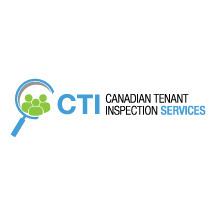


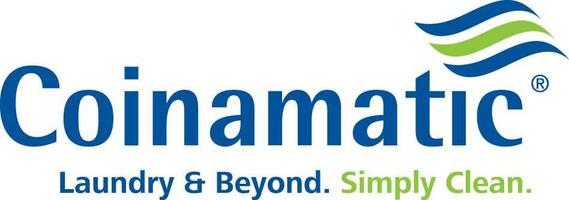




PLATINUM MEMBERS
GOLD MEMBERS

SILVER MEMBERS



CFAA Thanks its Supplie rs Council Members
To learn more about CFAA's Suppliers Council visit cfaa-fcapi.org/membership
MARCH 2023
CFAA-Rental Housing Conference 2023 in Halifax
CFAA Rental Housing Conference 2023 will take place from Wednesday June 14 to 16, at the Westin Nova Scotian in downtown Halifax. Register at www.cfaa-rhc.ca, and book a hotel room now before the room block runs out!
CFAA-RHC 2023 - Schedule in brief
Wednesday, June 14
Building Innovations Tour
Welcome Reception Harbour Cruise sponsored by Wyse
Thursday, June 15 Education Sessions, including Economic Update with Benjamin Tal Awards Reception Awards Dinner
Friday, June 16 Education Sessions
Closing keynote speech
CFAA and its partners are excited to visit Halifax, a city transformed in recent years by recordsetting development. This year’s CFAA conference will feature many new projects in downtown Halifax, and the great minds behind Halifax’s modern renaissance. (See the ad on page 29 for the buildings to be toured.)
Explore new trends and discuss new ideas with peers from leading organizations in Canada’s rental housing industry. CFAA-RHC 2023 will include many timely sessions on issues that matter. Sessions will address rental development, rental operations, operational and investment risks and opportunities, human resources, EDI and technology.
Besides Benjamin Tal’s Economic Update, education sessions will include:
• Executive Roundtable
• Operations Roundtable
• Rental development across Canada
• Developing land or properties for mixed uses
• Converting office buildings into apartments
• ChatGPT
• Marketing Trends
• The latest in leasing technology
• Residential smart tech and strategy
• What EDI programs work
• Cultural interactions for the best results
• Labour market strategies and trends
• The industry’s political problems, and how to deal with them
• Addressing operations issues created by new government rules
• Energy and GHG reporting and solutions
• The magic of heat pumps (for buildings of all sizes)
A few topics might vary as CFAA organizes speakers, and the speakers provide more input on the most critical current issues facing rental housing today.
Conclusion
Whether you are a rental housing owner, executive or manager, a hands-on owner or a rental industry supplier, there will be great information, ideas and contacts for you at CFAA Rental Housing Conference 2023. Come meet with other engaged individuals in the rental housing industry, exchange ideas. See how we benefit from working together. Enjoy East Coast hospitality.
For more information, or to register for CFAA-RHC 2023, please visit www.CFAA-RHC.ca. Act now to ensure your registration and hotel room!
40 | March 2023
2023 CFAA Compensation & Benefits Survey
As we have done every second year for more than a decade, CFAA will be producing the one and only Compensation & Benefits Survey focused exclusively on the rental housing industry in Canada. For employers in rental housing, the CFAA Report will provide:
• Pay averages and ranges for 9 Property positions

• Pay averages and ranges for 20 Head Office positions
• Health benefits and employment trends
• National, regional and City specific information
The property positions include building superintendent (resident manager), cleaner, doorman (concierge), leasing agent, maintenance technician, property administrator, property assistant manager, property manager and security guard.
Presuming sufficient data is received, the data on property positions will be reported for Toronto, Ottawa, the rest of Ontario, Ontario as a whole, Edmonton, the rest of the West, the West as a whole, and Eastern Canada. All reports will include Canada-wide data for the property positions, and for the head office positions. We also expect to produce a separate report on building superintendents, which includes a breakdown by building size. The benefits report will be Canada-wide, with a breakdown down by company size.




All specific data will be strictly confidential to the survey consultant, Steven Osiel, who has performed this survey from its inception. Data will only be reported on an aggregate and anonymous basis.
As in the past, contributing your employee data will get you a substantial discount on the report pricing. Data collection will start in April/May. The survey results will be provided in September.
If you are interested in participating, please e-mail admin@cfaa-fcapi.org.
rentalhousingbusiness.ca | 41 NATIONAL OUTLOOK












Contact Michael Gnat 416-635-4835 mgnat@midnorthern.com 45 Red Maple Rd Richmond Hill, ON 1-844-733-1696 www.thebrick.com www.midnorthern.com Coming soon... New Luxury Appliance Showroom
President’s message
After an unusual winter for many, spring is in the air and with it more sunshine and reason to be optimistic for the year ahead! FRPO has been hard at work in many areas and I always appreciate the opportunity to provide an update to our members in this column.

I am thrilled to share that FRPO welcomed the return of our annual CHMC Rental Market Breakfast in-person. In partnership with our friends at GTAA, over 200 people came out to listen to insightful presentations from Dana Senagama and Jeremy Tessier from CMHC. I would also like to thank Kellie Speakman from Preston Living, Margaret Herd from Park Property Management, and Jonathan Brimmell from Oxford Properties for participating in a spirited panel discussion. We received tremendous feedback from many attendees.
As part of FRPO’s ongoing participation in public policy discussions regarding Ontario’s housing crisis, I was honoured to join a panel with Romy Bowers, CEO of CMHC, Tim Hudak, CEO of the Ontario Real Estate Association, and Ene Underwood, CEO of Habitat for Humanity GTA at a roundtable event put on by the CD Howe Institute called Brick by Brick, Building Ontario’s Housing Supply. These are important opportunities for FRPO to educate and advocate for much needed rental housing supply and specific polices to encourage and incentivize purpose-bult rental housing.
Registration for our 2023 RTA Sessions is now open and we have received a very positive response with virtual and in-person options. As one of FRPO’s most popular events, I know this year will prove to be another invaluable update on landlord and tenant law with our expert presenters, so don’t miss out.
FRPO continues to engage with government officials in the Office of the Premier, as well as the Ministry of Municipal Affairs & Housing and the Ministry of the Attorney General. We expect the government to introduce another Housing Bill this spring, and FRPO has provided advice to support more supply and improve operations at the Landlord & Tenant Board, which we know requires urgent attention.
Finally, I would like to address staffing at FRPO. Over the past six months, Lechelle Cohen, Chloe Hill, and Ted Whitehead have departed the organization. All made valuable contributions to FRPO, and we wish them well. I want to assure our members that while we are in a time of transition, FRPO is operating as usual. We have recently welcomed Melanie David to the team as Executive Assistant and Administrative Coordinator. I’m sure many you will meet her in the coming weeks. Don’t forget we have the Spring Social coming up on April 20 immediately following Springfest. We hope you can join us. Thank you for your support, and don’t hesitate to reach out with ideas, feedback, or just to say hello!
- Tony Irwin, President
rentalhousingbusiness.ca | 43
Government relations update
As 2023 gets into full swing, FRPO has resumed engagement with various government ministries and officials to collaborate and support the Ford government as it continues to make progress on building 1.5 million homes over the next decade. In late November, Bill 23, More Homes Built Faster Act passed third reading and received Royal Assent. This legislation takes aim at government fees and charges by providing discounts from development charges for purpose-built rental housing, and makes a number of policy changes to streamline approvals and cut red tape. These are welcome changes that provide much needed relief to purpose-built proformas and will help to get shovels in the ground.
FRPO returned to Queen’s Park for our first in-person advocacy day since 2019. Activities included a lunch reception with MPPs and staff, attending Question Period and in-person meetings with Minister of Municipal Affairs & Housing Steve Clark, Associate Minister of Housing Michael Parsa, and Attorney General Doug Downey. FRPO members shared their concerns and offered suggestions to improve the operating climate for rental housing providers.
Before the end of the last legislative session, the NDP also introduced two Bills that FRPO opposes: Bill 47, which would amend the RTA and Condominium Act to require rental housing providers to supply emergency generators that would be AGI ineligible; and Bill 48, which would expand rent control to all units. These are opposition Bills that are not expected to progress past the Bill introduction stage.
In November, Attorney General Downey announced $1.4 million for the LTB to hire 35 additional operational staff to enhance scheduling, issue decisions and orders faster, and help tackle the high number of cases. FRPO welcomed this announcement, but structural changes are also needed to ensure timely access to justice for rental housing providers and residents. In December, FRPO engaged Attorney General Downey, Ministers Clark and Parsa, and the Premier’s office on this urgent issue, and we are hopeful that the government will tackle this in the next Housing Bill expected in the spring.
Prior to the provincial election last June, we heard from a few members that the Condominium Management Regulatory Authority of Ontario had contacted them regarding purpose-built rental buildings that are condominium titled to inform them that these buildings must be licensed under their authority and are subject to regulations under the Condominium Act and
Condominium Management Services Act. FRPO has engaged with officials from the Ministry of Public & Business Service Delivery with proposed amendments that would exempt properties registered as condominiums but operating entirely as rentals. The government has been receptive to our position and we are advocating for inclusion in an upcoming red tape Bill.
We also plan to initiate a number of studies and reports to support our advocacy efforts, including an updated economic impact study of our industry in Ontario as well as other studies that explore the economic challenges that are unique to building purpose-built rental housing and potential solutions. Government relations continues to be at the forefront of what we do to advocate for a strong rental housing industry with policymakers at Queen’s Park.
Ontario announces Housing Supply Action Plan Implementation Team members
On March 14, the Ontario government announced the members of the Housing Supply Action Plan Implementation Team. The new members join Chair Drew Dilkens, the Mayor of Windsor, and Vice Chair Cheryl Fort, the Mayor of Hornepayne. The team will evaluate progress and provide advice on implementing Ontario’s Housing Supply Action Plans and tackling Ontario’s housing supply crisis.
The new members are:
• Marlene Coffey, Chief Executive Officer, Ontario Non-Profit Housing Association
• Simone Swail, Senior Manager, Government Relations, Co-operative Housing Federation of Canada
• Adam Brown, Founding Partner, Sherman Brown
• Jim Harnum, Founder, Municipal VU Consulting Inc.
• Tony Irwin, President and CEO, Federation of Rental-housing Providers of Ontario
• Richard Lyall, President, Residential Construction Council of Ontario
• Paula Tenuta, Senior Vice President, Policy and Advocacy, Building Industry and Land Development Association
“I’m pleased to appoint seven experts to our Housing Supply Action Plan Implementation Team,” said Steve Clark, Minister of Municipal Affairs and Housing. “Their advice and broad range of experience in municipal planning, the not-for-profit sector, and the housing industry will get more homes built faster and help us reach our goal of 1.5 million new homes by 2031.”
44 | March 2023
The government recently introduced a series of measures, including More Homes for Everyone and More Homes Built Faster, to deliver both nearterm solutions and long-term commitments to build more homes faster to put home ownership within reach for all Ontario families.
Upcoming events
2 023 RESIDENTIAL TENANCIES ACT SESSIONS
An essential review of landlord tenant law With the many provisions contained within the Residential Tenancies Act and its regulations, it can often be difficult to navigate changes, especially in the current operating climate. As rental housing providers, it’s important to understand your rights and responsibilities under the RTA. This year, our sessions will focus on a variety of relevant topics including inter-tenant conflicts, recovery of rent arrears, unauthorized occupants, AGIs, and the Human Rights Code. Our presenters will also provide important updates from the Landlord and Tenant Board and current timelines for various hearings. Our sessions will also look at case examples from the LTB and Divisional Court that have significantly affected residential tenancy law this past year. Visit FRPO. org for details.
EVENT DATES
We are pleased to provide virtual and in-person options for this year’s RTA sessions. Our webinars will take place throughout the month of April in two parts, and on May 10, we will return to the Old Mill Toronto for our half-day format. All registrations include electronic materials that will be circulated to attendees in advance of their sessions. Space is limited, so register early!
Webinars
These sessions will take place in two parts:
Part 1: Wednesday, April 5, 9:30 am – 11:45 am
Part 2: Tuesday, April 18, 10:00 am – 11:15 am
Part 1: Thursday, April 13, 9:30 am – 11:45 am
Part 2: Tuesday, April 18, 10:00 am – 11:15 am
Part 1: Tuesday, April 25, 9:30 am – 11:45 am
Part 2: Friday, April 28, 10:00 am – 11:15 am
In-person session
Includes full breakfast
Wednesday, May 10, 8:00 am – 12:00 pm at the Old Mill Toronto
PM SPRINGFEST
Date and Time: April 20, 2023
9:00 am – 2:30 pm
EXCLUSIVELY FOR PROPERTY MANAGEMENT PROFESSIONALS
Equip yourself with new information and technologies to better position and optimize your buildings as well as expand your professional network! PM Springfest brings together property management professionals to connect with leading suppliers, explore new innovations, and learn from industry experts about the latest regulatory, health, and life safety changes; efficient energy management strategies; retrofitting aging buildings; essential capital planning details; and much more.
FRPO SPRING SOCIAL SPONSORED BY WYSE METER SOLUTIONS
Date and Time: April 20, 2023
2:00 pm – 5:00 pm
Please join us at this year’s Spring Social proudly presented by Wyse Meter Solutions. This exclusive FRPO Member event will take place immediately following SpringFest. Advance registration is required and space is limited. We hope to see you there.
Ontario’s leading advocate for quality rental housing
FRPO is the largest association in Ontario representing those who own, manage, build and finance residential rental properties.
For membership inquiries please contact Lynzi Michal, Director, Membership & Marketing
Federation of Rental-housing Providers of Ontario
20 Upjohn Road, Suite 105 Toronto M3B 2V9
416-385-1100 x 22
lmichal@frpo.org
www.frpo.org
rentalhousingbusiness.ca | 45
Yes, we can!
Since MetCap Living established itself as a leader in property management, we have routinely been asked one, simple question; “Can you help us run our property more effectively?” And, for well over thirty years, the answer has remained — Yes, we can! Our managers are seasoned professionals, experienced in every detail of the day to day operations and maintenance of multi-unit rental properties. From marketing, leasing, finance and accounting, to actual physical, on-site management, we oversee everything.

Guaranteed vacancy reduction, revenue growth and net profitability — when you’re ready to discuss a better option; we’ll be there. You can count on it.
Kazi Shahnewaz Director, Business Development
Office: 416.340.1600 x504
C. 647.887.5676
k.m.shahnewaz@metcap.com
www.metcap.com
Hot Topics:
LPMA discusses how institutions and programs in London help low-income tenants pay their rents, and what is planned for organic recycling (green bins) in both large and small rental buildings. pg. 49
EOLO reports on the City of Ottawa’s moves on organic recycling, new City steps under the Rental Housing Property Management bylaw, and the last call for declarations under the City’s Vacant Unit Tax. pg. 53

HDAA reports on new condo conversion policies, a major new redevelopment to cost more than $1B, the Hamilton Vacant Home Tax, and housing market reports from speakers at HDAA’s recent Dinner meeting. pg. 57

SKLA discusses upcoming organic recycling in Regina and Saskatoon, advocacy with the Saskatchewan Office of Residential Tenancies and the City of Prince Albert, the provincial Budget, the Saskatchewan Housing Benefit, and member services. pg. 61

The Member Associations
RHB’s forum for rental housing associations to share news, events and industry information

We provide expert advice and financial incentives to help affordable multi-family housing and eligible private market-rate housing providers with low-income tenants make efficiency improvements to boost building performance and reduce operating costs. Energy efficiency is key to sustainability — Free expert advice and $200,000* for equipment upgrades up to Start today by contacting an Energy Solutions Advisor. 1-866-844-9994 energyservices@enbridge.com * HST is not applicable and will not be added to incentive payments. All incentive offers are available to Enbridge Gas customers, including those formerly served by Union Gas Terms and conditions apply. Visit enbridgegas.com/affordable for details. © 2022 Enbridge Gas Inc. All rights reserved. ENB 961 06/2022 enbridgegas.com/affordable Eligible efficiency measures Lasting benefits Control systems Other custom solutions Water heaters ERVs and HRVs Boilers Make-up air units How to lower natural gas use and costs Lower greenhouse gas emissions. Enhance resident comfort and well-being. Reduce energy use and operating costs.
PRESIDENT’S MESSAGE
Passing the baton
After a long and unusual winter, spring has finally arrived! There’s plenty to celebrate as LPMA events fill the calendar.
The trade show is returning on April 11 to the London Hellenic Community Centre. We look forward to welcoming you to an informative evening with vendors and networking opportunities.
Our AGM is being held on May 9, also at the Hellenic Centre. Tony Irwin, president and CEO of FRPO, will be our keynote speaker. This AGM marks the end of my term as president after which I’ll move into the past president position for the next two years. It’s been an honour to serve in this capacity. Richie Anand will take over as incoming president.
Save the date for our upcoming annual golf tournament on September 11. Watch for more information on how to book your team when registration opens at the beginning of June.
Looking forward to seeing you at the AGM.
- Shane Haskell, President, LPMA

HELP YOUR TENANTS PAY THEIR RENT
With the cost of food and consumer goods on the rise, many tenants on low or fixed incomes are struggling to stay afloat financially. Small landlords in particular are impacted when tenants are unable to pay their rent and utilities.
Fortunately, there are programs and services that can help landlords help tenants.

The Housing Stability Bank at the Salvation Army Centre of Hope in London is one such program. Melissa Jeffrey, program manager, says the bank offers interest-free loans and grants to help eligible low-income Londoners with rent arrears, last month’s rent, and emergency utility assistance.

It’s not uncommon for tenants to experience a housing crisis if they’re not earning enough money and then lose their job or become injured and are no longer able to work.
“The Housing Stability Bank is available to provide some financial support to mitigate that housing crisis and allow the individual to get caught up on arrears of rent or utilities or even to relocate within the city to safe and affordable housing,” Jeffrey says.
Recipients can access the interest-free loan
program once every 12 months or sooner if they pay off any previous loans from the bank and attend an eligibility appointment. They need to meet the income requirements and be employed or receive a regular source of income such as OW, ODSP, CPP or a pension.
“Having an ongoing source of income typically demonstrates that they’re able to pay rent going forward and hopefully wouldn’t fall into arrears again,” Jeffrey says.
Many landlords refer tenants to the bank as a proactive measure after notifying them they will receive an N4 notice of eviction. Referring tenants to sources of low-interest loans or grants helps small landlords to pay off their own mortgages and build rapport with residents, Jeffrey notes.
The Housing Stability Bank offers three services, listed below. Individuals can apply at https:// centreofhope.ca/housing-stability-bank/ or call 519964-3663 ext. 300.
Rental assistance provides interest-free loans to tenants who are behind in their rent. The loans go toward paying up to two months of rent arrears, last month’s rent, and certain legal fees. Jeffrey says applicants must have received an eviction notice or need to move to a new home in London. The loans are typically repaid through an automatic monthly withdrawal from applicants’ bank accounts.
rentalhousingbusiness.ca | 49
Shane Haskell
Melissa Jeffrey
Ontario Electricity Support Program (OESP), an Ontario Energy Board (OEB) program, lowers electricity bills for low-income households. The OESP provides a monthly credit to eligible customers, starting from $45 a month based on household income and size. The credits are applied directly to customers’ bills. Individuals can apply online at www.
OntarioElectricitySupport.ca or they can call the Housing Stability Bank for help applying. Jeffrey says lowering electricity bills has a preventive effect. “The hope is that the arrears aren’t accumulating in the same manner that they would without that credit.”
Low-Income Energy Assistance Program (LEAP), also from the OEB and administered by the Housing Stability Bank, provides a $500 one-time grant toward electricity charges for consumers who have a past due notice on their bill. Additional grant funding is available for water charges. The program is available from January 1 of each year until funds have been exhausted annually. At that point, interestfree loans up to $500 are available. Recipients can access a LEAP grant every 12 months.
Tenants who are on Ontario Works (OW) or the Ontario Disability Support Program (ODSP) can have their rent paid directly to their landlord out of their benefits.
If a tenant’s income comes from OW, direct payments can be made to a public or private landlord for initial rent deposits, rental arrears or ongoing rent. An administrator approves a request by an OW recipient, taking into consideration rental payments in arrears. The administrator also investigates requests from landlords, especially if the OW recipient is at risk of eviction.

If the tenant’s income is from ODSP, similar arrangements can be made. The recipient can request a direct rent payment to the landlord or the landlord can make a request of the individual’s caseworker, particularly if the recipient has frequently made late rent payments, if the payments are currently in arrears, or the individual is at risk of being evicted.
Post-dated cheques are another option, as are automatic withdrawals from a tenant's bank account or by credit card. These methods can be suggested to the tenant, but under the Residential Tenancies Act, they can’t be made mandatory.
LONDON’S GREEN BIN PROGRAM: TURNING FOOD WASTE INTO A RESOURCE
Residents in townhouse complexes and single-family homes will no longer be throwing their kitchen scraps into the garbage once the City of London launches its green bin program.
The program, in which food waste and soiled paper products are collected, is expected to be rolled out late this fall. The City will also start a pilot project in high-rise apartment buildings.
Jay Stanford, director of climate change, environment, and waste management for the City of London, said when food waste breaks down in a landfill, it creates methane, a potent greenhouse gas that contributes to climate change.
“The green bin program is just a way to take food waste that is currently in the garbage and turn it into a valuable resource — either a compost product or an energy source through anaerobic digestion,” he said.
The timeline for starting the program depends on the delivery of new waste collection trucks, which have been on back order for the last 18 months. Due to supply chain issues, the manufacturer hasn’t been able to provide a delivery date for all trucks.
“Without trucks, we can’t roll the program out,” said Stanford, who outlined the details during a webinar hosted by LPMA in February.
Townhome complexes will be included if they have curbside service or dedicated collection points for garbage and recycling. Procedures will be developed for each situation, Stanford said, adding that troubleshooting plans will be created closer to the launch date.
In 2020, City Council provided funding for the program, which will cost $4 million a year or $20 per household.
50 | March 2023
The City will provide 100,000 to 120,000 households with a green bin and a small kitchen catcher where residents will collect food scraps. Each green bin will hold 46 litres of waste, slightly larger than the largest blue box.
The bins will be wheeled to the curb where the contents will be collected weekly along with blue box materials. Garbage will be collected every two weeks, which will be possible because the “smelly” items that account for one-third of all garbage will be removed from the waste stream.
Stanford said participation in the program isn’t mandatory and residents can continue to compost in their backyards, a more cost-effective option. Based on other communities the City has been tracking, participation in the program is expected to be between 60 and 65 per cent of London’s population.
Multi-residential buildings
According to the provincial food and organic waste policy statement, multi-residential buildings must reduce non-organic waste by 50 per cent, and must have a green bin program to recover organic waste by 2025.

The City is launching a pilot project in high-rise apartment buildings late this summer and is looking for 10 buildings to participate. Operating the program in high-rises is more complicated because building managers will need to communicate information to residents on how to separate the materials properly. Tenants, then, will need to follow through.

“We don’t have many mechanisms as a city to work directly with the individual. We’re not as close to people living in high-rise buildings and it is often
more difficult to convey program information and provide feedback,” Stanford noted.
The City will cover the cost of the pilot project on the understanding there will be support from on-site superintendents and involvement from building owners, as well as tenant access to bulletin boards and bin locations for information. Two different methods are being considered, including the use of dedicated carts with wheels or a larger bin located on individual properties. Both systems will be tested during the pilot project. In both cases, tenants will receive a kitchen catcher, and the organic waste will be collected weekly. The City is in a procurement process to determine which company will process the materials. Bidding is open to any company with an environmental compliance approval to process green bin materials, Stanford said. In London, there is currently one composting facility, with a second one being established, as well as an anaerobic, or biogas, digester.
Stanford said the City hopes to have 10 to 15 per cent of the multi-residential sector involved with the green bin service in 2024. The remainder is expected to be included in 2025, although the expansion will depend on council’s approval in early 2024. Council will determine how to pay for the service in future deliberations.

The City would like to have discussions with LPMA to determine best approaches, Stanford said. “Working in collaboration helps these kinds of projects work better. We used that exact same model for the blue box program and we were able to share that advice and learning and pass that on to others. It worked well,” he said.
London Property Management Association (LPMA) is a non-profit organization, located in London, Ontario, Canada, that provides information and education to landlords.
LPMA represents the interests of both large and small property owners. The association has more than 400 landlord members representing approximately 35,000 rental units. Membership is open to landlords and property management professionals who own or manage one or more residential rental units.
Sign up online or call Tina Potter.
Ph: 519-672-6999
Web: www.LPMA.ca
rentalhousingbusiness.ca | 51

Listening to a real estate legend: The official publication of: Canada’s #1 most widely read publication for Apartment Owners, Managers and Association Executives Vol. 15 No. 6 March 2023 Margaret Herd OneVoice,OneMessage,OneMagazine! Thinkaboutwhatyou’llmissinthenextissue.SubscribetoRHBMagazinetoday!rentalhousingbusiness.ca/subscribe
Chair’s message
EOLO members have now enjoyed three in-person semi-annual Education and Networking events since the pandemic restrictions were lifted. The March 2023 event was the best attended in many years. Besides the political updates set out below, attendees heard a panel discussion of three EOLO directors, namely Theresa Pelletier of Minto, Geoff Younghusband of Osgoode, and Christian Szpilfogel of Aliferous, discussing their concerns about rental housing. As well, attendees heard my interview with Councillor Steve Desroches, Alicia Martinez of HousingWorks (affiliated with Operation Come Home) discussing head leasing to support young renters, and Peter Adamovits talking about rents in the Ottawa secondary market. All speakers gladly answered audience questions.
- John Dickie, Chair, Eastern Ontario Landlord Organization
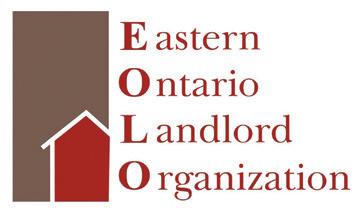
Solid waste/organic recycling
The City of Ottawa’s current plan is that, by 2025, all multi-residential buildings that receive City waste collection will be required to provide organic recycling. Some buildings provide it now. A report on steps to follow to effectively implement organize recycling is found in the EOLO section in RHB Magazine for March/April 2022, which is available online. David Boushey is also willing to share his experience with EOLO members who want more information. If you want to contact him, reach out to EOLO at admin@eolo.ca.
A year ago, the City’s expectation was that onethird of multi-res buildings would be enrolled in each of 2022, 2023, and 2024. However, only a minimal number of enrollments took place in 2022, or so far in 2023.
In June, rental housing providers using bin collection should expect letters from the City inviting them to put forward buildings for organic recycling on a voluntary basis. Certain buildings will be better suited for early implementation than others. For example, you may have a building where tenants have been asking for organic recycling, or you may have a building where the superintendent or other site staff are keen on environmental improvements. It will be easier to
overcome the implementation challenges in such buildings than in average buildings where there may be less interest.
If an insufficient number of buildings are put forward voluntarily, City staff will develop a prioritization plan to require buildings to be onboarded.
Curbside collection diversion
Curbside diversion is also proceeding. In May and June, the City will decide on the issues of curbside collection bag limits for residual waste and/ or a requirement for tags to charge by the bag. EOLO made submissions on those issues; City staff told us they have recently reviewed those submissions.
New rules will need to be in place for the next collection contract, which is due in 2026.
The Rental Housing Property Management Bylaw
Regular readers of this section in RHB Magazine will remember that there was a tenant push for landlord licensing in Ottawa five years ago. With a lot of work, EOLO managed to prevent the adoption of landlord licensing with applications

rentalhousingbusiness.ca | 53
and annual licensing fees. Instead, the City adopted the Rental Housing Property Management Bylaw. That bylaw required five sets of actions to be taken, as shown in Table 1.
Table 1: Actions required by bylaw Action
Record of service requests and responses
Tenant support registry
Information to tenants
Capital maintenance plan (CMP)
Integrated pest management (IPM)
August 2021
August 2021
November 2021
August 2021
August 2021
In place on a complaint basis
To take place soon proactively
The record of service requests and responses required little change from the records most rental housing providers kept anyway. The tenant support registry is also a minor recordkeeping job. The information packages for tenants were an administrative exercise to set up, but they are not difficult to keep issuing to new tenants, as is required. EOLO reported in detail on what is required in RHB Magazine for March/April 2021 and May/June 2021. Email admin@eolo.ca if you want a copy of the slide decks that EOLO prepared to assist rental providers with the implementation requirements.
It is clear in the Bylaw that rental housing providers have to keep a streamlined capital maintenance plan, and have to give a copy to a bylaw officer on request. However, unlike the situation in Toronto, rental providers do not have to make a copy of that available to tenants.
Likewise, rental providers have to keep an integrated pest management plan. (That can be 20 pages long, but with EOLO’s input, the City has provided a template.) Before treating a rental unit, rental providers are required to give tenants a treatment plan. That is typically one or two pages long, giving the tenant instructions on what they need to do. It is clear in the Bylaw that the 20-page IPM plan does not need to be given to tenants. (If pests are becoming a problem in a building, then information on preventing and control the particular pests should be given to tenants.)
While there may be some confusion in the minds of some City of Ottawa bylaw officers, there is no requirement to provide tenants with the CMP or IPM plan. The requirement is to provide a copy of those plans to a bylaw officer upon request. EOLO is in the course of sorting out the confusion with Bylaw and Regulatory Services.

Registry of violations
As part of the total RHPM system, the City is rolling out a public registry of property standards violations. There are two purposes for this new registry: first, to assist prospective tenants with evaluating rental properties for their level of service; and second, to motivate rental providers to improve their service and their level of proactivity.
EOLO initially opposed the registry, but then switched to minimizing the requirements and impacts, especially for good quality rental providers. For example, we argued that in-unit repairs usually do not come to the rental property owner’s attention until a tenant reports the need for repairs, and it would be unfair to project that the rental property owner has failed in their obligations if repair needs have not been reported.
54 | March 2023
Date Due Enforcement
EOLO succeeded in having the Registry limited to Orders or Notices of Violation, which should only be made after a bylaw officer has identified a violation. In contrast, in some cities, tenant complaints are made public, but that is not the case under Ottawa’s system.
EOLO also convinced City staff that the system should show the size of the building and include a note that tenants need to take building size into account along with the number of violations.
The Registry is expected to roll out in June or later this year. EOLO is in touch with the applicable City staff, and should be able to notify members of the rollout when it occurs. The rollout will not be publicized by the City. However, we can expect it to be publicized by ACORN, the tenant advocacy group.
City of Ottawa Vacant Unit Tax (VUT)
The VUT applies to all properties in the residential tax class with a residential building on the property (according to MPAC’s coding). A vacant property should not be subject to the VUT. However, if a property that is vacant is coded as having a building, then the owner will need to sort that out. In addition, a vacant property may be subject to the new system requiring a permit for a vacant property.
The VUT operates on a negative billing basis. All residential property owners were required to file a declaration about the occupancy/vacancy status of each dwelling unit by March 16, although property managers could register for owners. Residential properties are those with up to six dwelling units on the property. That includes condos even if they are operated as part of a rental building of more than six units.
Properties (other than condos) with seven or more units are not residential properties for the VUT; instead, they are multi-residential properties, and exempt from the VUT by provincial law.
Besides stating the occupancy status of a property, the declaration can be used to claim an exemption from the VUT for various reasons, including substantial renovations with a building permit, use as a principal residence, the death of the owner, or the sale of the property at arm's length. Executors or people holding a power of attorney for property should address the need to file the declaration.
If a declaration was required and not made, the unit will be deemed vacant, and the tax would normally apply. However, in 2023, a declaration can be made late, until April 30, without any penalty. If the VUT is continued, then in future years there will be a late fee of $250 to file the declaration late.
If the April 30 deadline is missed, then the unit in question will be deemed vacant, and the tax will apply, subject to an appeal, with a substantial appeal fee.
The tax is generally 1 per cent of the assessed property’s value. However, if one or more units are occupied, and other units are vacant, then the assessed value will be divided equally among the units. For example, if one unit out of three is vacant, the tax will be the value of the whole property times 1/3 times 1 per cent.
As the VUT rolled out, City Councillors received many complaints about the VUT process, especially the negative billing aspect. They have directed staff to provide two reports on the numbers of declarations and other information. Those reports will be opportunities for the VUT to be cancelled or modified for the future. However, as of March 16, the City had received 311,000 occupancy status declarations, or about 96 per cent of the total of the City’s residential properties. EOLO will likely seek to have the VUT abolished or, as a fallback, to add more exemptions, including removing the tax from condo units in buildings operated as rental buildings of more than six units.
BECOME AN EOLO MEMBER NOW!
EOLO invites Ottawa area landlords to join the organization. Have your interests and concerns heard, and benefit from EOLO’s support. As an EOLO member, you will be able to:


• Receive prompt emails of relevant City rule changes
• Attend two networking receptions a year
• Attend two free education events a year
• Receive all 6 annual issues of RHB Magazine with current developments, City and provincial funding programs, and landlord-tenant laws.
To apply for membership, go to www.eolo.ca, download the membership application form and send it to us at the contact info on that website.
rentalhousingbusiness.ca | 55

Over 60 Years of Experience (905) 842-4141 www.awesleypaving.com Proven Professional Paving Services Commercial • Industrial • Residential Bonded • Insured
PRESIDENT’S MESSAGE
The HDAA Trade Show and Golf Tournament are coming up within the next few months and we have been diligently working away to ensure they are successful. We are continuing to hold dinner meetings, with our first two of the year well attended. We expect to have updates on the pilot licensing program and will continue working with the City on their housing initiatives, particularly those that affect the rental housing industry.
- Arun Pathak, President, HDAA
Condo conversion policies
The City of Hamilton has undertaken a review of its rental housing protection policies in their Official Plan. The City is proposing changes to its policies on conversions of purpose-built rental housing to condominiums, and on demolitions of purpose-built rental housing. The proposed changes are intended to establish appropriate limitations to manage change and ensure protection of existing affordable rental housing units.
The main changes proposed include:
1. Requiring an overall City-wide vacancy rate of above 3 per cent for the previous consecutive 24-month period and a vacancy rate of 2 per cent for the specific unit type and local housing market zone across a 24-month period
2. Removing a permission allowing conversion of a rental building to condominium if 75 per cent of tenants are in agreement
3. Adding a permission allowing demolition if the landowner demonstrates the units will be replaced by units of the same type either on-site, off-site in a comparable location or through a cash-in-lieu payment; an acceptable tenant relocation and assistance plan would be required in addition to replacement
4. A new by-law be enacted under the authority of the Municipal Act to regulate all conversions and demolitions of six or more rental units through a permit process
The HDAA met with the City to provide input on the proposed changes. The main concern involves vacancy rate changes, which should not be increased to 3 per cent as it may be unattainable. We cautioned that bringing in further legislation and overregulating private housing providers may result in a decrease in new supply, since closing off that “exit strategy” is a disincentive to develop.

In addition, much of our current rental supply is older stock that needs or will need to be rejuvenated. However, higher costs of maintenance, low turnover, and capped increases mean there may not be funds to bring properties up to standard. The option of conversion to condominium provides an avenue to rejuvenate old stock while providing more affordable home ownership opportunities. Generally, allowing conversion to a condominium may provide increased rental supply.
New developments in Hamilton
The City of Hamilton will soon see the largest redevelopment in over 30 years, that will change the downtown core. The City Centre Mall development is proposed to consist of four tall, mixed-use buildings, with 2,068 dwelling units and 3,067 square metres of commercial space. The towers, ranging between 26 and 30 storeys, with units from studios to three-bedroom condos, will be built by IN8 Developments.
IN8 president Darryl Firsten says his company, which partnered with Harlo Capital, expects to get final approval and a building permit soon and is planning demolition to start this year. Demolition will take most of the year with construction to take close to a decade. The project is expected to cost more than $1 billion, up from $700 million projected when first announced. The development will have street-level retail that will integrate into the community. It will also integrate elements from the old building, such as the clock tower from Hamilton’s old City Hall. This development will bring much needed housing to Hamilton while incorporating commercial opportunities in the downtown core.
Another project is the Jamesville development, which is expected to be a 447-unit, mixed-income community with a 46-unit, rent-geared-to-income
rentalhousingbusiness.ca | 57
apartment building. This development will replace a townhouse complex of 91 units that had been closed for several years awaiting redevelopment. Many have criticized CityHousing, which vacated the site, and the City for taking much-needed housing off the market and allowing the site to sit when housing is needed. However, intensification requires old, low-density housing to be demolished to make way for new, high-density housing.
The development has been stalled following an appeal by CN Rail, filed just as the developer began demolition. The property is north of the West Harbour GO train station and within 300 metres of the CN Stuart Street Yard. CN’s reasons for appeal include concerns of odour, vibration, noise, and safety concerns related to the proximity of the development to the railroad’s marshalling yard and whether the proposed sensitive land uses are appropriate. CN’s appeal letter indicates they believe the City failed to meet the planning and environmental requirements to ensure compatibility with CN’s operations. The appeal jeopardizes the plan to maximize new affordable housing units. Until the appeal has been resolved, demolition and remediation remain paused.
Vacant Home Tax
The HDAA met with the City last year about the proposed Vacant Home Tax. We expressed our concerns about the program and doubts it would change rental supply in Hamilton. We also argued it creates a burden on Hamilton residents, as all property owners must provide a declaration.
Unfortunately, Hamilton City Council decided to proceed and, in June 2022, approved the implementation of the tax. Starting in 2024, residential properties that have been unoccupied for six months during the previous year must pay the tax. The idea is to encourage owners to rent empty properties and increase the supply and affordability of housing in the City.

All residential property owners must declare the status of their property during the previous year; if no declaration is made, the property will be deemed vacant and will be subject to the tax. Fortunately, there will be exceptions and the tax will not apply to principal residences. We will provide more details on the framework in the next issue.
Past events
March 8, 2023 – Dinner meeting
The HDAA held a great dinner meeting in March. We were joined by the REALTORS Association of Hamilton-Burlington (RAHB), the West End Home Builders’ Association (WEHBA), and Yardi to discuss updates in the rental and housing market, provide information on what is happening with purpose-built rental housing, and discuss trends in rental pricing.
Arun Pathak, HDAA President, spoke on the CMHC Rental Market Report. The overall vacancy rate in Hamilton in 2022 decreased to 1.9 per cent, the lowest since 2002. Reasons include an increase in student renters and fewer renters transitioning into home ownership. Vacancy rates for rental condominium apartments were lower at 0.5 per cent, despite an increase in supply. Only 12 per cent of vacant units were considered affordable to renters in the 40th income percentile (i.e., an income of $46,000 per year). The average market rent for two-bedroom units increased to $1,438, up $76 from the previous year.
Wayne Tuck presented on Yardi’s Canadian National Multifamily Report. The report found increased numbers of renters, as fewer transitioned into home ownership. Their findings showed increased rent amounts, up 11.9 per cent year-over-year in the last quarter of 2022, and a decrease in vacancy rates. Hamilton had leading growth in rental amounts with a 6.7 per cent year-over-year change in in-place rents. Turnover rates have been decreasing, making it difficult for housing providers to reposition units or to receive the higher market rents on many units. Across Canada, trends saw an increase in rents in smaller cities driven by an increase in work from home, while increases in rents in major cities were driven by immigration and students.
58 | March 2023
Lou Piriano, President of RAHB, discussed the general housing market and trends. The housing market has experienced a significant shift since the pandemic with an approximate 40 per cent drop in home sales and an approximate 22 per cent drop in home prices. Recently, unadjusted benchmark prices have been trending up, which may indicate prices are starting to stabilize. There appears to be a measurable link between supply and prices. There was a significant dip in inventory in 2021, when there were record home prices, and this trend reversed last year with more inventory and decreasing prices. The biggest risk factor will be government restrictions. The stress test is also a concern, elevating thresholds for affordability and keeping some buyers from entering the market.
Mike Collins-Williams, CEO of WEHBA, discussed how Hamilton is one of the fastest growing areas in North America, but also one of the least affordable based on average income. This is making Hamilton less attractive for young families. The federal government has target numbers of immigration, but governments are failing to provide adequate housing. The Province’s goal is to build 1.5 million homes in Ontario, with
more purpose-built rental housing. The trend has not been promising, as purpose-built rentals have represented less than 10 per cent of total new rental supply over the past 10 years, and almost 90 per cent of GTA purpose-built rentals were built more than 40 years ago.

Upcoming events

April 18 – Trade show
The HDAA is excited to hold our trade show after a long pandemic. You won’t want to miss it. Hundreds of rental housing providers and community members attend the trade show, as well as dozens of industry suppliers. Our keynote speaker event will have the biggest names in the rental housing industry providing their thoughts on what they think will happen over the next few years. You may find more details on our website, as well as on our vendor registration form.
May 10 – Dinner meeting

June 6 – Golf tournament
The HDAA golf tournament is a popular networking opportunity and a great way to spend a day out of the office. You can look forward to
rentalhousingbusiness.ca | 59
MULTI-RESIDENTIAL CONTRACTING Design-Build Common Area Refurbishment Building Envelope Restoration V i s i t u s o n l i n e a t w w w p a c b u i d l i n g g r o u p c o m o r c a l l 9 0 5 - 6 0 5 - 4 7 2 2 t o g e t s t a r t e d t o d a y ! W e p a r t n e r w i t h o u r c l i e n t s t o u n d e r s t a n d t h e i r g o a l s a n d i n t e r p r e t t h e i r v i s i o n , b u i l d i n g s p a c e s t h a t a r e d i s t i n c t l y s u i t e d f o r e a c h e n v i r o n m e n t W i t h a n i n t e g r a t e d a p p r o a c h a n d s e a m l e s s p r o c e s s , w e o u t p a c e t r a d i t i o n a l e x p e c t a t i o n s .
And



Jeffrey McNeil With

CEO’S MESSAGE
The first quarter of 2023 has been a busy time for Saskatchewan’s rental housing industry and for the Saskatchewan Landlord Association. We’ve been hard at work planning for several upcoming events and advocating for our members on a variety of issues. We began the year by gathering our Board of Directors for a strategic planning retreat that focused on how we can better serve our members and their businesses. Did you know that close to half of our members have four units or less? Conducting a member analysis has helped us understand our demographics and the programs and services that each segment of our membership needs.
With this in mind, we’re planning quarterly in-person events throughout 2023, complemented by regular webinars and, of course, Conference 2023! Save the date to join us in Saskatoon on September 27-28 for what is promising to be a dynamic and relevant conference that will include education, networking, food, drinks, and fun.
In conversations with several members, I’ve heard that there continues to be strong rental housing demand, even over the winter months, which is traditionally a slower time. With sustained immigration and increasing costs of home ownership, I’m sure we will continue to see strong demand as we approach spring and summer. It’s a great time to be a rental housing provider and a great time to be a tenant because Saskatchewan remains the most affordable province to rent a home.
Thank you to our members for their continued support of the association and the work we do. It’s a pleasure to serve such an important and dynamic industry in our province.
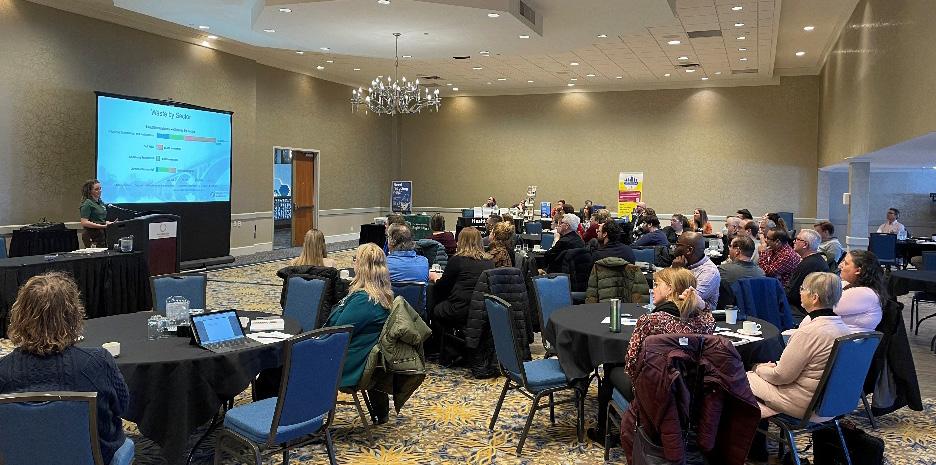 - Cameron Choquette, CEO
- Cameron Choquette, CEO

Events at a glance
Blue, black, and green bins in Saskatoon
Our first quarterly event in Saskatoon was proudly sponsored by Cosmo Industries, a long-time partner of the SKLA. Together with the City of Saskatoon, participants learned about Learning to Love Waste Diversion, with information on blue, black, and green bins. This event was an excellent opportunity to learn more about the launch of the new green bins and prepare for a pilot program for multi-unit green bins that will be coming to Saskatoon in 2024.
rentalhousingbusiness.ca | 61
Cameron Choquette, CEO
More than 50 members listen to the City of Saskatoon’s presentation on sustainability at the SKLA’s first quarterly event, Learn to Love Waste Diversion.
All things municipal in Regina

For our Regina members, we’re excited to be hosting our first event of the year with the City of Regina. Happening on April 27, this event will feature several presenters from the City who will talk about municipal policies and programs like housing incentives, snow removal, property maintenance, fire inspections, and more.
In fall 2023, the City of Regina will be rolling out a citywide curbside food and yard waste service. This is designed to reduce the need for landfill expansions by increasing the diversion rate of items that can be composted.
Death, drugs, and disastrous messes in Saskatoon
In partnership with Saskatoon Police Service’s Crime Free Multi-Housing program, we will be hosting this event that will help our members to navigate those messy challenges that many of us encounter from time to time. Participants will be coached on how to respond to tenant deaths, drug issues, and messes such as hoarding or fire and flood damages. Almost all of the information is equally valuable in communities besides Saskatoon.
Advocacy
Since the SKLA’s inception, advocating for landlord rights has been one of our top priorities. This remains true today and is a key impact area within our strategic plan. As an association, we are the voice of our members and work hard to achieve balanced and fair legislation and policies in the areas that impact our industry. We engage in a number of key advocacy activities, including the following.
Office of Residential Tenancies
In March, the association’s Stakeholder Relations Committee sent a letter to Director Anne-Marie Cotter of the Office of Residential Tenancies (ORT) on the following requests:
• Fixing glitches with ORT Online, such as loading times, evidence not uploading, and adding more auto-fill functionality to reduce repetitive entries
• Adding a notification system to the ORT Online portal so that we don’t have to login to check claim status
• More professional and friendly customer service from dispute resolution staff and hearing officers
• Consistent rulings on cleaning fees and clearer direction on when a Form 13/14 needs to be used to withhold the security deposit
After the letter was submitted, the SKLA met with ORT leadership and discussed the items above in a very constructive manner. We will provide updates as changes are made.
Provincial budget
Saskatchewan’s provincial budget was released on March 22 and our CEO, Cameron Choquette, attended on behalf of the association. Key budget highlights included:

• $1.0 billion surplus and $1.0 billion debt repayment
• No new tax increases
• $30/month increases for social services clients
• $3.7 billion in capital investments
62 | March 2023
While the SKLA appreciates the increase for social services clients, the shelter benefits for these clients are well below even affordable rental rates. The lack of sufficient benefits contributes to the homelessness issues in our province and doesn’t allow our members to house clients on social services because they have nowhere near the funds required to pay for rent.
Property taxes in Prince Albert
While the SKLA understands that there are significant budget pressures on municipalities, the rising costs of property taxes in Prince Albert have become exorbitant. Base taxes, special taxes, and increasing mill rates are all eroding the affordability of rental housing and the feasibility of continued investment.


Together with SKLA member Brian Howell from Riverbank Development, the SKLA presented at a City Council meeting in Prince Albert to outline how high property taxes reduce competitiveness, deter investment, and lead to housing supply shortages.
While the property tax bylaws were still approved and no relief was granted to homeowners or rental housing providers, the City was appreciative
of our comments and promised to circulate a housing action plan that was completed for the City in 2017 that likely still has some relevant and attainable recommendations and goals.
Canada-Saskatchewan Housing Benefit
To help tenants being squeezed by rising costs, the Saskatchewan Housing Benefit (SHB) gives up to $325 per household per month. Tenants are eligible if they have low or modest incomes and spend 35 per cent or more of their income on rent and utilities.
Recently announced is a new Supportive Housing Stream that provides additional support for our province’s vulnerable populations. It is for individuals who live in Saskatchewan Housing Corporation-approved housing and receive on-site support services.
These types of portable housing benefits help tenants afford their rent and reduce evictions caused by non-payment, which is a significant burden currently being faced by both tenants and rental housing providers.
Member services
To continue improving our programs and services for members, we’re excited that we’re working with our Board of Directors and Membership Committee to develop more resources for members to use. Some new resources being released in the coming months include:
• Lawyer-approved tenancy agreements
• More sample warning letters, legal clauses, and flowcharts outlining eviction processes
• Official ORT support guide for filing applications
Stay tuned to our social media and our official newsletter The Landlord Ledger for more details and release dates.
As the voice of landlords in Saskatchewan, we deliver knowledge, promote best practices, and advocate for a healthy and resilient rental housing industry. We are the leading community of industry professionals who are proud to provide safe, high-quality rental homes for the people of Saskatchewan.
We work to ensure Saskatchewan’s rental housing industry meets the needs of renters, owners, and managers. Our team is dedicating to serving our members in any way that we can.
Cameron Choquette, Chief Executive Officer #17-102 Cope Cr, Saskatoon, SK
S7T 0X2 eo@skla.ca
rentalhousingbusiness.ca | 63
Final Take Away Final Take Away
Accomplishing more with less
By Peter Altobelli, Vice President, Yardi Canada Ltd.
Brought to you by Yardi Canada Ltd
There’s a question on many people’s minds this year: Are we headed toward a recession? According to a recent Forbes article, “A recession may be on the way, with economists predicting a 70% chance of economic downturn this year.” With many uncertainties ahead, the best defense against the unknown is for property owners and managers to fine-tune their business strategy.
Start by implementing an all-in-one property management solution to help fill any gaps a recession may bring (e.g., lack of resources or staff). With the recent explosion of new tech providers, here’s why an all-in-one cloud platform matters to your business.
Cut your workload in half
When managing more than one tenant, owner or investor, your time is best spent when it’s distributed across all aspects of your business, not on endless hours of paperwork. This is where secure online portals come into play. They add convenient self-service options for resident screening, leasing, payments, maintenance requests, and reporting. Cloud-based solutions increase transparency by allowing tenants, owners, and investors to log in from anywhere and securely view important information. This also results in fewer incoming calls to the office. The easiest way to offer online portals and gain a competitive edge is to use property management software that includes all these features within one platform. That way, you don’t have to worry about additional IT burden, manage multiple services and passwords, or deal with duplicate data entry.
Expand your office hours
Tenant satisfaction is more important than ever, which is why it hurts to miss a maintenance call or respond late to critical issues. Instead, offer your residents support when they need it and leverage a maintenance call centre that integrates with your property management platform. The call centre routes all calls to a live agent who has real-time access to each resident’s profile, information, payment history, and maintenance requests, all of which is pulled from your property management software. The customers’ questions get addressed, their experience is seamless, and your service stands out from other businesses. Plus, you always stay within your set budget.
Reach more quality renters
Once your operations are running more efficiently,
you will have time and resources to re-evaluate your digital strategy. Did you know that, according to the 2021 Informa Multi-Residential Tenant Rental Survey, roughly 70 per cent of renters visited a property website when searching for an apartment? Having a website and featuring your properties on Internet Listing Service (ILS) platforms can improve your online presence and help simplify the renter journey.
A professional property website should easily provide your future tenant with relevant information, such as unit availability, pricing, floorplans, video tours, high-quality pictures, and detailed amenity descriptions. ILS platforms are more common than traditional marketing tools. Your listings and property websites can be connected to the data in your management software, and the system will automate the screening application process. An interconnected system enables you to showcase availability in real time and boost your online marketing, giving your community a distinct personality that will help it stand out in a competitive field.
Signs of success
It’s crucial to choose software that fits your organization. The property management solution you adopt will impact how efficiently your team can work, your renters’ overall experience, and your reputation in the industry. When you take your business to the cloud, you reduce the amount of paperwork you must process, speed up operations, and gain improved security for sensitive information. You’ll also find it easier to add important services such as a 24/7 maintenance centre and professional marketing websites for your properties.
For more information on how software can help your business, visit YardiBreeze.ca
64 | March 2023




www.acegroupgta.ca 416-285-5388 GTA’S OLDEST AND MOST RELIABLE GENERAL CONTRACTOR CRANFIELD GENERAL CONTRACTING V&E CLEANING ACE PAINTING
































 By David Gargaro
By David Gargaro






























 Principal Conference Sponsor |
Principal Conference Sponsor |





















































































 - Cameron Choquette, CEO
- Cameron Choquette, CEO








